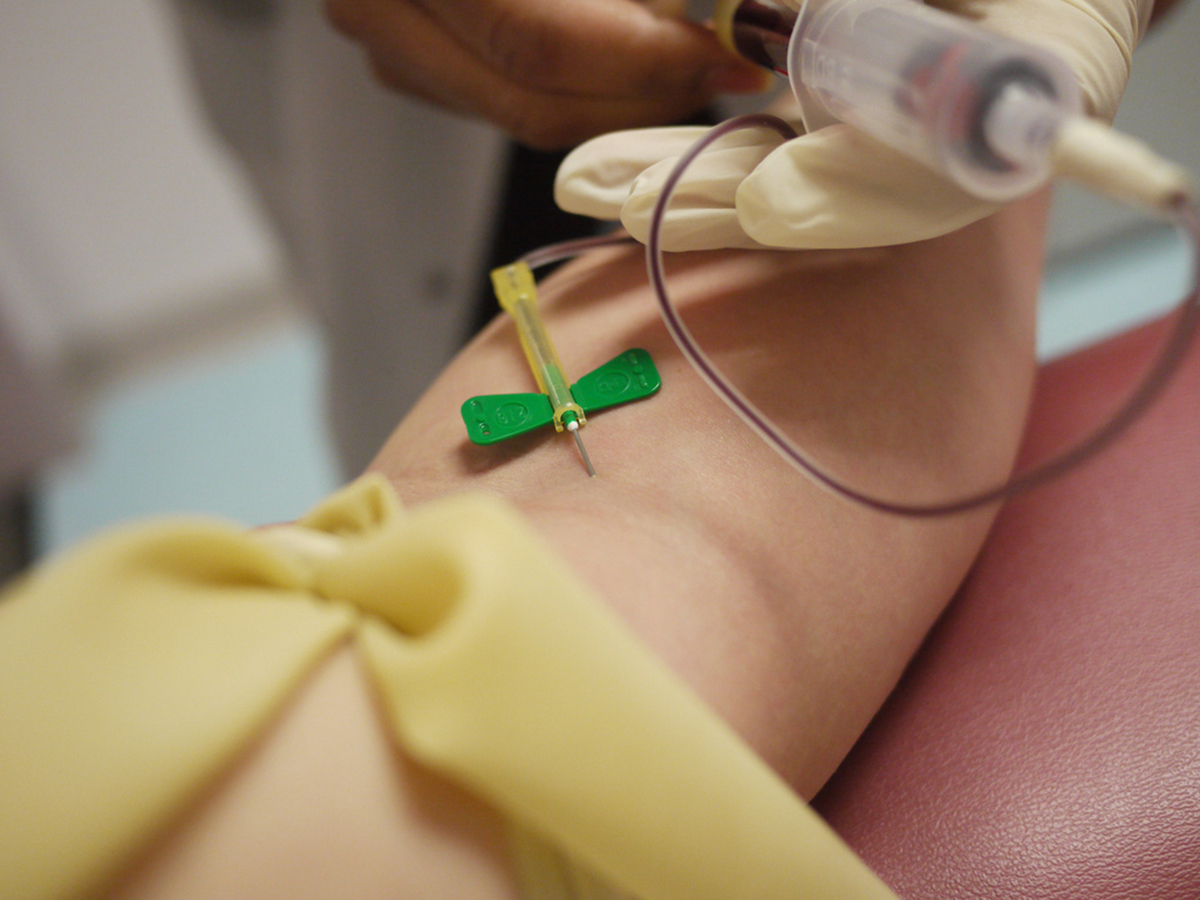Human blood contains solid particles in the form of red blood cells (RBCs), white blood cells (WBCs), and platelets as well as a liquid component called plasma. The red blood cells function mainly to transport oxygen to the various tissues and organs around the body, while the platelets work mainly to prevent or stop bleeding.
On the other hand, our white blood cells, which consist of five different types of cells, have various functions. Their main function is, however, to protect the body from disease. The cells in the blood are manufactured primarily in the bone marrow and are released into the circulation upon maturation.

Getting a complete blood count (CBC) test is part of a routine laboratory work-up. Your doctor or other health care provider may also request a complete blood count to help diagnose a medical problem if you present with symptoms. Occasionally, your doctor may find that you have a high white blood cell count, a condition also clinically called leukocytosis.
In most cases, the cause of the high white blood cell count is related to an on-going medical condition, such as an infection, but less frequently, high white blood cell counts may be caused by a serious disorder or disease process, such as leukemia. The values that doctors consider as a high WBC count may differ from one medical practice to another. Furthermore, the threshold for a high white blood cell count in kids varies with their age and size. In adults, a WBC count of more than 11,000 per microliter of blood is considered higher than healthy.
What Causes High White Blood Cell Count?
In general, a high white blood cell count may indicate that:
- You have an increased production of WBCs in the bone marrow
- Your body is reacting to a drug that causes an increase in WBC production
- You have a disease in the bone marrow that is causing an abnormally high production of WBCs
- You have an immune system disorder that causes an increase in WBC production
Sometimes, a high white blood cell count may indicate that you are experiencing unusual psychological or even physical stress, which may be due to various factors, including intense exercise or severe emotional stress.
Leukocytosis (a white blood cell count that is abnormally high) may be due to a wide range of causes. There are five distinct components of white cells that may contribute to an increase in the total number of your WBCs. Leukocytosis may occur due to an increase in one or a combination of these cells:
- Neutrophils
- Lymphocytes
- Eosinophils
- Monocytes
- Basophils
Sometimes immature white blood cells (blasts) from the bone marrow are also found in the blood. The type of cells involved in leukocytosis, which are found under microscopic examination may help the clinician find out what is causing your condition.
Neutrophilia
The neutrophils make up about 59 percent of your white blood cell population. An increase in your neutrophil count (neutrophilia) may be due to:
- Infection, which is the most common cause, frequently due to bacteria but also fungi or viruses
- Inflammation, which may be related to various conditions such as inflammatory bowel disease, vasculitis, or rheumatoid arthritis
- Malignancy (cancer), including leukemia (cancer of the blood)
- Stress
- The use of certain drugs or medications, including lithium, heparin, carbamazepine, Phenobarbital, phenytoin, minocycline, and steroids
- Certain genetic conditions such as familial cold urticaria, familial neutrophilia
See Also: Selenium and its Effect on Immune System, Neutrophils and Thyroid Gland
It is noteworthy to mention that some bacterial infections, such as typhoid fever, do not cause neutrophilia. Other bacterial infections may cause a decrease in neutrophils (neutropenia) include Staphylococcus aureus, rickettsia, and Mycobacterium tuberculosis. Severe and chronic infections may also cause your neutrophil count to decrease because the demand is higher than the rate of production.
White Blood Cell Count High: Other Causes
Lymphocytosis
Your lymphocytes make up between 20 and 40 percent of your white blood cell population. An increase in their count (lymphocytosis) often translates to an overall increase in WBC count on your lab test results.

An increase in your lymphocyte count is often related to certain acute and chronic infections as well as malignancies of the lymphoid system. The culprits can include:
- Acute infections such as pertussis, cytomegalovirus infection, toxoplasmosis, Epstein-Barr virus infection, and viral hepatitis
- Chronic infections such as tuberculosis and brucellosis
- Chronic lymphocytic leukemia
- Several viral illnesses such as infectious hepatitis, infectious mononucleosis, and respiratory syncytial virus infections
- Connective tissue diseases
- Addison's disease
- Thyrotoxicosis
- Splenomegaly (enlargement of the spleen)
Eosinophilia
The eosinophils are cells that are involved in allergic and immunologic events. An increase in absolute eosinophil count (> 0.5 X 109/L) is considered as eosinophilia. The most common causes of elevated eosinophils include:
- Allergies including allergic asthma, hay fever, and eczema
- Drug hypersensitivity
- Dermatological (skin) conditions such as dermatitis herpetiformis and pemphigus
- Parasitic infections such as visceral larva migrans
- Infections such as scarlet fever, leprosy, chorea, genitourinary infections
- Immunologic disorders such as rheumatoid arthritis and lupus erythematosus
- Certain lung conditions such as Löffler's syndrome
- Malignancies such as Hodgkin's disease and non-Hodgkin's lymphoma
- Chronic myelogenous leukemia
- Sarcoidosis
- Addison's disease
Monocytosis
The monocytes are the largest type of white cells and their main function is to attack bacteria and viruses that invade your body, as well as dead or foreign substances in the body. Monocytosis is defined as an increase in monocyte count (> of 0.95 X 199/L). It is commonly caused by the following underlying conditions:
- Bacterial infections such as tuberculosis, brucellosis and subacute bacterial endocarditis
- Viral infections such as infectious mononucleosis and other infections (kala azar, Rocky Mountain spotted fever, malaria,)
- Chronic myelomonocytic leukemia and monocytic leukemia
- Hodgkin’s disease
- Metastatic cancer, lung cancer, and other cancers
- Recovery phase of an acute infection.
- Autoimmune disease such as systemic lupus erythematosus, ulcerative colitis, rheumatoid arthritis, and inflammatory bowel disease.
Basophilia
The basophils are cells involved in inflammatory responses and these cells release substances such as histamine. Together with mast cells, they participate in the events that occur during allergic reactions and anaphylaxis. An increase in basophils (basophilia) is uncommon as a cause of leukocytosis. It may be due to:
- Viral infections such as chronic sinusitis and varicella
- Inflammatory conditions such as chronic dermatitis and inflammatory bowel disease
- Chronic myelogenous leukemia, myelofibrosis, polycythemia vera
- Chronic hemolytic anemia
- Hodgkin's disease
- Hypothyroidism
- Splenectomy
Treatment Of Leukocytosis
Leukocytosis may be a sign of a disease, but in most cases there is no specific treatment for it. A high white blood cell count is usually found after the doctor has ordered blood tests to diagnose a condition you are experiencing, frequently because you will seek medical attention for specific symptoms. Together with the results from other tests, a complete blood count that reveals a high white blood cell count may help identify the cause of your illness, but your doctor is likely to recommend other tests to further evaluate your condition.
See Also: Leukemia: The Blood Cancer
In most cases, the treatment of a disease such as an infection or allergic reaction will result in improvement and normalization of your white blood cell count. However, in serious cases involving disorders of the bone marrow where the blood cells are produced, more intensive therapy may be needed.
- Mayo Clinic. High white blood cell count. http://www.mayoclinic.org/symptoms/high-white-blood-cell-count/basics/causes/SYM-20050611
- Medscape. Leukocytosis. http://emedicine.medscape.com/article/956278-overview
- AAFP. Leukocytosis: Basics of Clinical Assessment .http://www.aafp.org/afp/2000/1101/p2053.html
- Photo courtesy of SteadyHealth
- Photo courtesy of Thirteen Of Clubs by Flickr: www.flickr.com/photos/thirteenofclubs/5457364899/
- mayoclinic.org
- medscape.com
- aafp.org

